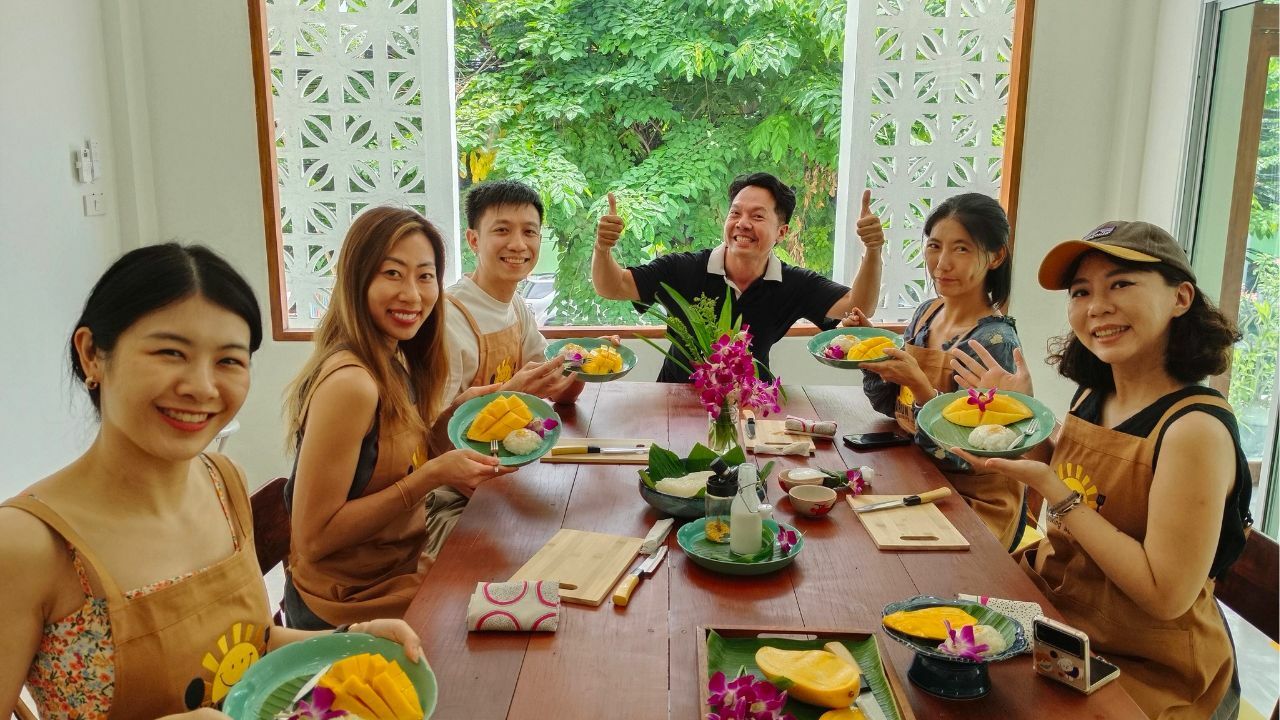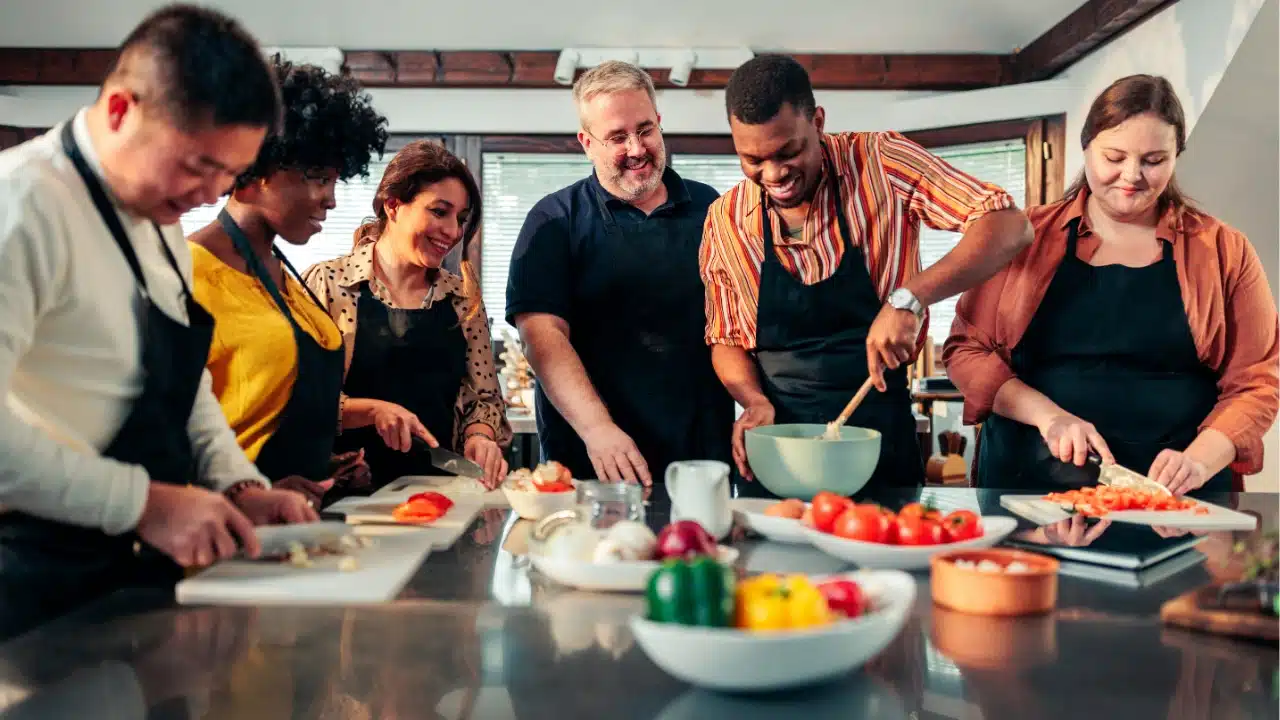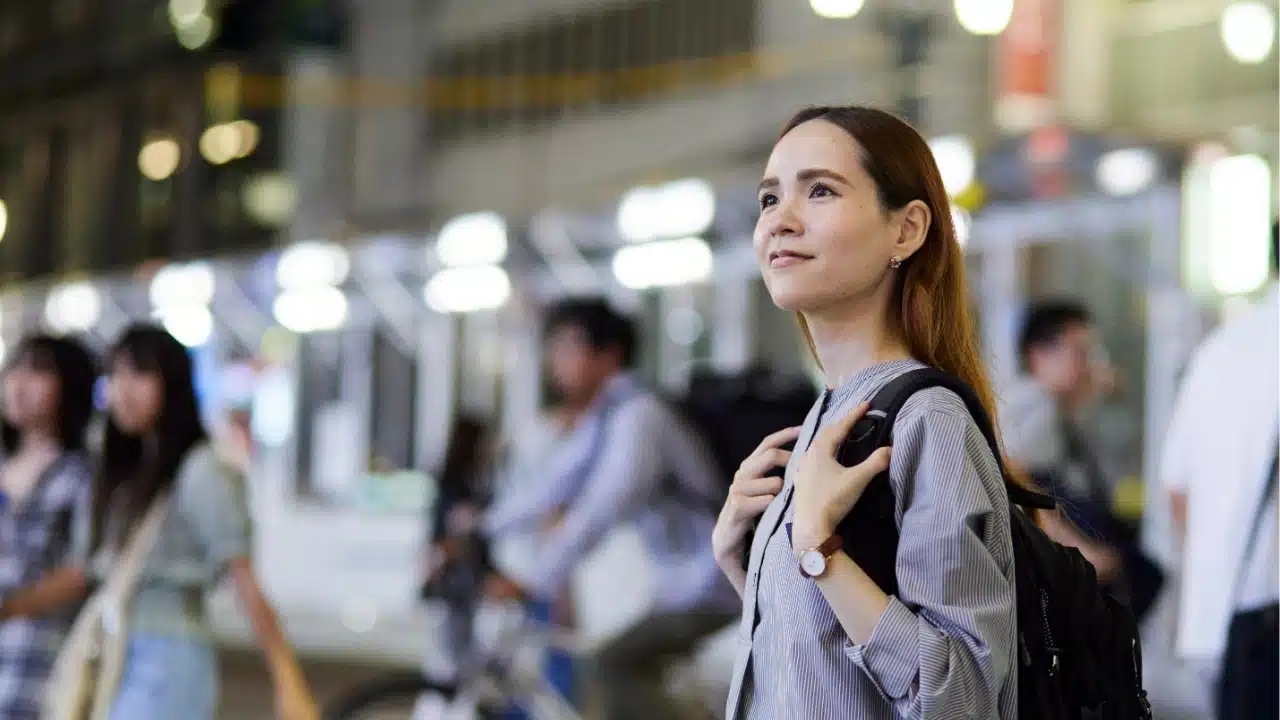5 years on a DTV visa: Discovering Thailand through cooking
Immerse yourself in the opportunity to connect with the Thai culture with cuisine while you stay

Spending five years in Thailand on a Digital Nomad (DTV) visa offers a unique opportunity to experience the country beyond the usual tourist attractions. One of the best ways to connect with Thai culture is through its food. Learning to cook traditional dishes, visiting local markets, and sharing meals with locals and expats create unforgettable experiences. Discovering Thailand through its cuisine is a rewarding way to dive deeper into the country’s traditions while enjoying the freedom the DTV visa brings.
ดูโพสต์นี้บน Instagram
On this page
| Jump to Section | Description |
|---|---|
| Choosing a Thai cooking school for the DTV visa | Information on how enrolling in a Thai cooking school can help meet the cultural activity requirement for the DTV visa, including course length, location, and flexibility. |
| Experience at the Arun Thai Cooking School | A breakdown of the hands-on experience at Arun Thai Cooking School, from market visits to cooking lessons and the cultural significance of the dishes taught. |
| Living in Thailand on a DTV visa | Discusses accommodation options, the cost of living, and the lifestyle benefits that come with a DTV visa, including immersion in Thai culture through activities like cooking schools. |
| Visa renewal and compliance for the DTV visa | Details about the visa renewal process, required documents, and cultural activity participation to maintain compliance with the DTV visa for up to five years. |
Choosing a Thai cooking school for the DTV visa

Enrolling in a Thai cooking school is a great way to meet the cultural activity requirement for Thailand’s Destination Thailand Visa (DTV). Cooking classes give you hands-on experience with real Thai food while qualifying as a cultural activity for the visa, making it perfect for long-term visitors and digital nomads.
When choosing a cooking school, keep these things in mind:
- Course length and flexibility: Look for schools that offer courses that fit your visa and stay plans. Some schools offer options from 2 months to 12 months.
- Practical experience: Choose a school that focuses on real cooking, teaching traditional dishes like Pad Thai, Tom Yum Goong, and Mango Sticky Rice. Some schools also offer market tours to buy fresh ingredients for a richer experience.
- Location and facilities: Pick a school that’s easy to get to and has good facilities, like spacious kitchens and small class sizes (preferably under 12 people).
- Language and support: Make sure the school offers classes in a language you understand, such as English or Chinese. Some schools also offer visa support to help with the DTV visa process.
- Reputation and success rate: Look for a school with a strong reputation and a proven track record in helping students get the DTV visa.
Choosing a cooking school that offers both a wonderful culinary experience and official recognition for the DTV visa can make your visa process smoother and your time in Thailand more enjoyable. Arun Thai Cooking School is an excellent option for those looking to extend their stay in Thailand through the DTV visa.
Experience at the Arun Thai Cooking School
Mark Friedman from Baan Thai Immigration Solutions has interviewed the Arun Thai Cooking School and he found that they offer an engaging and hands-on experience that helps meet the cultural activity requirement for the DTV visa. Each class starts with a fun tuk-tuk ride to a local market, where students learn how to pick fresh ingredients used in Thai cooking. This tour gives a great introduction to traditional Thai shopping and the food culture of Bangkok.
After the market visit, students head to a bright and spacious kitchen to start cooking. Classes are kept small, with no more than 12 people, ensuring plenty of attention from the chefs. Students prepare well-known Thai dishes like Pad Thai, Tom Yum Goong (spicy shrimp soup), Massaman Curry, and Mango Sticky Rice. The focus is not only on cooking but also on understanding the role these dishes play in Thai culture.
Classes are available in English and Chinese, making it accessible to a wide range of students. Flexible course lengths are offered, from 3 to 12 months, so participants can choose what fits best with their schedule. At the end of the course, students receive recipe books and certificates, which can help with the DTV visa application. This course is an excellent way to learn about Thai cuisine and culture while meeting visa requirements.
Living in Thailand on a DTV visa

The Destination Thailand Visa (DTV) allows digital nomads and remote workers to live in Thailand for up to five years, with each visit lasting 180 days, extendable for another 180 days. Expats can choose from a range of accommodation options, including fully furnished apartments in cities like Bangkok, affordable shared housing, or co-living spaces, to suit different budgets and lifestyles.
The cost of living in Thailand is still attractive for DTV visa holders. Everyday expenses such as food, transport, and entertainment are generally affordable. Eating local Thai food, including fresh market produce and street food, is budget-friendly and offers a great cultural experience, like the cooking school market tours. Public transport and tuk-tuks are convenient and cheap ways to get around.
Community and lifestyle are important parts of life on a DTV visa. Joining local cultural activities like Thai cooking classes, festivals, and traditional ceremonies makes the experience richer and helps build connections. The DTV visa encourages participation in cultural programmes, such as cooking schools, that last at least six months. These programmes not only help with visa requirements but also give a deeper understanding of Thailand’s culture.
Overall, the Destination Thailand Visa offers a great balance between work flexibility and cultural immersion, such as cooking, allowing you to enjoy life in Thailand’s lively environment.
Visa renewal and compliance for the DTV Visa

To stay compliant with the Destination Thailand Visa (DTV), you must continue participating in approved cultural activities, such as attending a recognised Thai cooking school for at least six months. This helps you meet the visa’s “soft power” requirement and keep your visa status active.
Renewal process:
- Where to apply: You need to apply in person at Thai Immigration offices, like the Chaeng Wattana branch in Bangkok.
- Extension fee: Pay a fee of 1,900 Thai baht to extend your stay for another 180 days.
- Repeat process: This can be done multiple times, allowing you to stay in Thailand for up to five years with multiple entries.
Required documents for renewal:
- Proof of activity: Keep records of your cooking school attendance or an enrollment letter.
- Financial proof: You need to show you have at least 500,000 Thai baht in liquid assets.
- Health insurance: Valid health insurance coverage is required.
Re-entry:
- Multiple entries: The DTV visa allows multiple entries without needing a separate re-entry permit.
- Leave and re-enter: After each 180-day stay, you must leave Thailand and re-enter to reset your stay period.
The Destination Thailand Visa (DTV) lets digital nomads and remote workers live in Thailand for up to five years with the option to extend. One of the main benefits of this visa is that it allows you to take part in cultural activities, like joining a Thai cooking school, which helps meet the visa’s requirements.
If you’re planning to live in Thailand on the DTV visa, completing cultural activities like enrolling in a Thai cooking school is essential. To make your entry smoother, fill out your TDAC form here ahead of time. This private service helps you submit before the standard 72-hour window, offering a faster, smoother entry process. Please note that this is not the official government portal.
The cost of living in Thailand is affordable, with many accommodation options available, from furnished apartments to co-living spaces. To renew the visa, you need to apply at Thai Immigration, provide the necessary documents, and continue your cultural activities, such as Muay Thai or cooking, with the Destination Thailand Visa. For more details about the DTV visa, check out the article on Thailand’s 5-year visa for digital nomads.
Latest Thailand News
Follow The Thaiger on Google News:


























